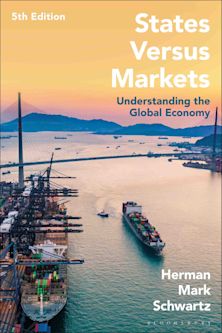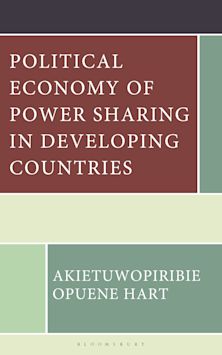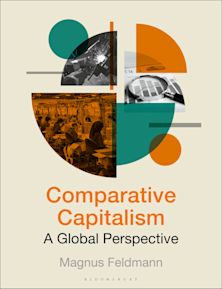- Home
- ACADEMIC
- Politics & International Relations
- Political Economy
- Transitions from State Socialism
Transitions from State Socialism
Economic and Political Change in China and Hungary
Transitions from State Socialism
Economic and Political Change in China and Hungary
For information on how we process your data, read our Privacy Policy
Thank you. We will email you when this book is available to order
You must sign in to add this item to your wishlist. Please sign in or create an account
Description
Exploring the transformation of state socialism through a comparative study of the reform experiences of China and Hungary, this book focuses on the relationship between economic and political change. Despite following parallel paths through much of the reform period, China and Hungary diverged drastically in 1989, when Hungary installed a democratic political system while China used brutal military force to suppress political dissent. After tracing common political, economic, and ideological dimensions, Yanqi Tong explains the dramatically different outcomes in the two countries. She identifies key differences in the social costs of economic reform, the international setting, strategies pursued by the establishment and its opponents, and the coalitions formed by political elites. Tong also argues that developments since 1989 demonstrate that the end of conventional state socialism has guaranteed neither stability, democracy, nor prosperity as powerful legacies from both the communist and reform eras thwart the development of healthy political and economic systems.
Table of Contents
Chapter 2 Hungary and China Under State Socialism
Chapter 3 Preliminary Ideological and Political Liberalization
Chapter 4 The Political Consequences of Economic Reform
Chapter 5 Societal Challenges to the Political Establishment
Chapter 6 The Adaptability of the Political Establishment
Chapter 7 Coalition and Confrontation
Chapter 8 Developments in Hungary and China After 1989
Chapter 9 Conclusion
Product details
| Published | 01 Jan 2000 |
|---|---|
| Format | Ebook (Epub & Mobi) |
| Edition | 1st |
| Extent | 280 |
| ISBN | 9780585114163 |
| Imprint | Rowman & Littlefield Publishers |
| Publisher | Bloomsbury Publishing |
About the contributors
Reviews
-
Fresh, sharply argued, and cleanly written...This book is a pleasure to read and a prime candidate for courses in Chinese and comparative politics. Yanqi Tong makes a lucid study of the transition from state socialism through a careful comparison of Hungary and China. This is an excellent example of comparative contextual analysis of two reform cases from opposite ends of the world.
Timothy Cheek, Journal of Asian Studies
-
Tong engages one of the key debates in the field of comparative political economy: how should states in the throes of transition from state socialism pursue economic and political transformation, simultaneously or sequentially? In tackling this question, Tong makes a significant contribution to scholarship in comparative politics.
C. A. Hody, University of Maryland, Baltimore County, Choice Reviews
-
Tong makes a significant contribution to scholarship in comparative politics.
C. A. Hody, University of Maryland Baltimore County
-
[Tong has the] ability to see the larger patterns in the political history of modern China, to place those patterns in comparative perspective, and, when necessary, to challenge conventional wisdom. . . . [This book] is an example of one of the most valuable approaches to the study of comparative Communist systems: the structured, focused comparison of cases.
Harry Harding, George Washington University
-
This book is a pleasure to read and a prime candidate for courses in Chinese and comparative politics. Tong makes a lucid study of the transition from state to socialism through a careful comparison of Hungary and China. This is an excellent example of comparative contexual analysis of two reform opposite ends of the world and with many geographic, cultural, and structual differences but with telling elective affinities: . . . Tong's book thus makes a good companion to Peter Van Ness's comparison of China and Hungary a decade ago. The book is fresh, sharpley argued, and cleanly written.
Timothy Cheek, Jas Feb 99
-
In this richly exciting comparison of China and Hungary, Yanqi Tong breathes new life into our understanding of the transition away from socialism. Her complex but lucidly written analysis should get the widest attention from policymakers as well as scholars. All those concerned about the future in Eastern Europe, Russia, and China, will be rewarded but sobered in learning why democracy is no guarantee of success in economic reform and why reform can get stuck halfway on the road toward markets and democracy.
Susan L. Woodward, The Brookings Institution



































